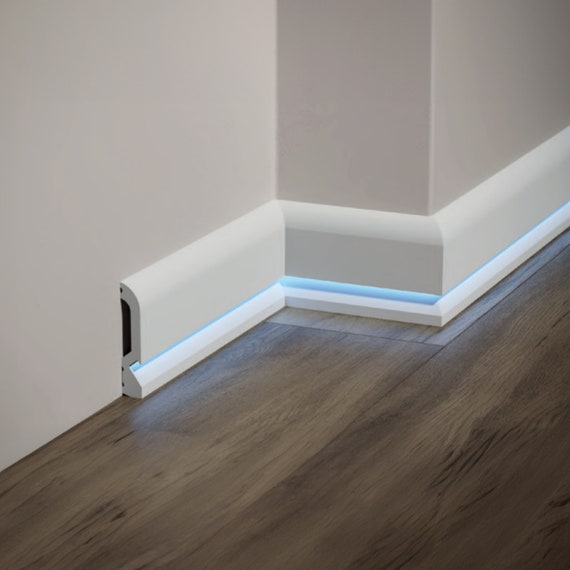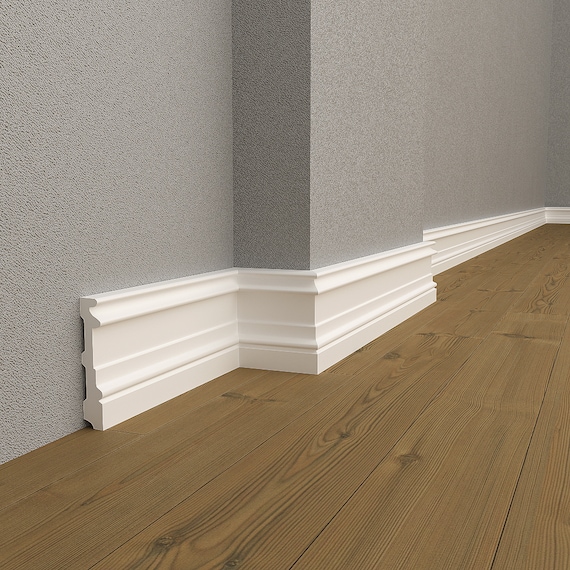Choosing the right baseboards for your home can be a daunting task. With countless designs, materials, and styles available, how do you select the one that will perfectly complement your decor? As someone who has navigated this process and transformed my own space, I’m here to share everything you need to know about baseboards, with a special focus on Floor and Decor. This guide is packed with tips, comparisons, and insights derived from personal experience to help you make informed choices.
What Are Baseboards?
Baseboards, also known as skirting boards, are the finishing touches that run along the bottom of interior walls. They serve both aesthetic and functional purposes:
- Aesthetic Appeal: Baseboards enhance the overall look of a room, providing a clean finish that separates the wall from the floor.
- Protection: They protect walls from scuffs and damage that can occur from furniture or foot traffic.
Why Choose Baseboards from Floor and Decor?

Floor and Decor is recognized for its extensive range of flooring and decorative items, including baseboards. Here are some reasons why you might consider their products:
- Diverse Selection: Floor and Decor offers various styles, colors, and materials to fit any decor theme.
- Quality Materials: Their products are made from durable materials that stand the test of time.
- Competitive Pricing: They provide quality products at reasonable prices, making home improvement accessible.

Types of Baseboards
1. Wood Baseboards
Wood baseboards are classic and add a touch of warmth and elegance. They can be stained or painted to match your decor. Here are some pros and cons:

| Pros | Cons |
|---|---|
| Durable and long-lasting | Can be expensive |
| Available in various styles | Needs regular maintenance |
2. MDF Baseboards
MDF (medium-density fiberboard) is a popular choice for baseboards due to its affordability and ease of installation. Here are the benefits and drawbacks:

| Pros | Cons |
|---|---|
| Economical | Less durable than wood |
| Easy to paint or finish | Sensitive to moisture |
3. Vinyl Baseboards
Vinyl baseboards are a low-maintenance option that’s resistant to moisture, making them ideal for bathrooms and kitchens. Here’s a closer look:

| Pros | Cons |
|---|---|
| Water-resistant | Less stylish than wood |
| Durable and easy to clean | Limited color options |
Choosing the Right Baseboard Style

Baseboards come in numerous styles to match various interior designs. Let’s explore some popular options:
1. Modern Baseboards
These are typically sleek and minimalistic, perfect for contemporary homes.
2. Victorian Baseboards
Ornate and detailed, Victorian baseboards add a touch of elegance and sophistication.
3. Colonial Baseboards
These have a historical look that complements traditional homes. They often feature a more substantial profile.
Measuring for Baseboards
Getting the right measurements is crucial when selecting baseboards. Here’s a step-by-step guide:
- Measure the length of each wall where you will install the baseboards.
- Add the lengths together to get the total linear footage needed.
- Consider waste (typically an extra 10% for cuts and mistakes).
How to Install Baseboards
Installing baseboards can be a DIY project if you’re up for it. Here’s a simple guide based on my personal experience:
Tools You’ll Need
- Miter saw
- Nail gun or hammer and finish nails
- Measuring tape
- Level
- Wood glue (optional)
Installation Steps
- Cut your baseboards to size using a miter saw.
- Position the baseboard against the wall and check for level.
- Nail the baseboard to the wall, ensuring it’s secure.
- Seal any gaps with caulk and apply paint if desired.
Maintenance Tips for Baseboards
To keep your baseboards looking pristine, consider these maintenance tips:
- Regular Cleaning: Dust and wipe them down with a damp cloth to prevent buildup.
- Touch-Up Paint: Keep paint handy for quick touch-ups as needed.
- Inspect for Damage: Regularly check for scuffs, dents, or water damage, especially in high-traffic areas.
Comparison of Baseboard Materials
| Material | Cost | Durability | Maintenance |
|---|---|---|---|
| Wood | High | Very High | Regular upkeep required |
| MDF | Low | Medium | Easy to maintain |
| Vinyl | Medium | High | Very low upkeep |
Baseboard Design Trends for 2023
As we move forward in 2023, several design trends are gaining popularity:
1. Tall Baseboards
Tall baseboards create a more grand and elegant look, making rooms feel taller and more luxurious.
2. Contrasting Colors
Using a bold color for your baseboards can create a striking contrast against wall colors, adding an extra design element.
3. Integrated Lighting
Incorporating LED lighting into baseboard designs is a trend that adds both ambiance and functionality.
FAQs About Baseboards from Floor and Decor
What is the best material for baseboards?
The best material often depends on your needs. Wood is classic and durable, while MDF is economical and easy to work with. If moisture resistance is key, vinyl is a great choice.
Can I install baseboards by myself?
Yes, many homeowners successfully install baseboards as a DIY project. With the right tools and patience, you can achieve professional results at home.
How do I match baseboards with my flooring?
When matching baseboards to flooring, consider color and style. A good rule of thumb is to choose a baseboard that complements or contrasts tastefully with your floor.
What are the dimensions of standard baseboards?
Standard baseboard heights range from 3 to 5 inches, but this can vary based on your design preferences and ceiling height.
Conclusion
Choosing the right baseboards for your home is a decision that impacts both aesthetics and functionality. By understanding the different types of materials, styles, and installation processes, you can select baseboards that not only enhance your space but also reflect your personal style. Whether you opt for the classic appeal of wood or the modern look of MDF, Floor and Decor offers a variety to fit all needs. Happy decorating!